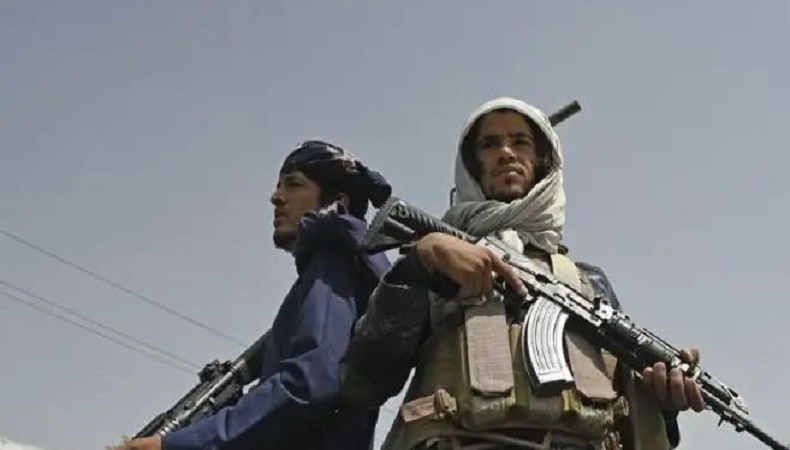Syrians in Idlib and Aleppo protest Tahrir al-Sham practices


After Pakistan, which has always been very close to the Koranic students and very interested in extending its control over the neighboring country, on Monday, the Kabul new rulers received an important handshake with the Islamic Republic of Iran’s delegation a visit to the Afghan capital. The agreement foresees to intensify the work at the borders within ten days to “facilitate the flow of exports and imports,” while will start the results for the improvement of road connections on both sides within a month and will harmonize customs tariffs.
Furthermore, a commercial city will be built between Dogaron and Islam Qala: the parties prepare “the necessary framework for its foundation and construction within a month.” Still, on the commercial and transport front, the agreement also provides for the joint assessment of the damage caused by the war on the Shamti-Roznak railway line and the Roznak station, and to do so, a delegation of Iranian experts will arrive in Afghanistan “in the next ten days.”
Finally, “the Islamic Republic of Iran has decided to open a special exhibition in Kabul or Herat when the Afghan side can guarantee its safety.” But in perspective, the mission that the Afghan Oil Ministry representatives will carry out in Iran “to study and share the problems of fuel supply is critical.” And it is not enough, “both parties have agreed to build a gas pipeline from Dogaron to Islam Qala,” the works will begin shortly.
Related posts
- Afghanistan women: A country but no sense of belonging
- Afghanistan: Did the Taliban steal Alexander the Great’s treasure?
However, electricity is guaranteed only for a few hours a day. Even in its main cities, the government has not paid the energy bill for months to suppliers who have already hinted that they could soon turn off the taps. ‘Afghanistan imports electricity from Tajikistan, Uzbekistan, Turkmenistan, and Iran: the total bill is worth $ 300 million a year.
The Iranian delegates left, the British arrived in the Afghan capital: the high representative of the Prime Minister for the Afghan transition, Simon Gass, and the charge d’affaires of the United Kingdom mission in Afghanistan in Doha, Martin Longden, had talks with the Taliban. No agreement, no acknowledgment, but yet another diplomatic approach by a Western country to tackle the hottest problems on the table. The Foreign Office warns in a statement that the British government “continues to do everything possible to ensure safe passage for those who wish to leave and is committed to supporting the Afghan people.”
Simon and Longden “discussed how the UK could help Afghanistan deal with the humanitarian crisis, the importance of preventing the country from becoming a terrorist incubator, and the need for continuous safe passage for those who want to leave the country.” They also raised the problem of the minority’s treatment and the rights of women and girls, concludes the note. In Kabul, the two envoys met with senior members of the Taliban, including mullahs Amir Khan Muttaqi, Abdul Ghani Baradar Akhund, and Abdul-Salam Hanafi.
However, the reading given at the meeting by the Afghans has a slightly different tone. Taliban deputy prime ministers met with British representatives calling on the international community “to release the funds of the Afghan people,” and arguing that isolating Afghanistan will increase poverty and unemployment and harm the whole world.
The international community must not fear Afghanistan from which it will not receive any danger, reassuring the international community that the necessary conditions have been restored so that they can operate on the territory “in all sectors, in particular in humanitarian and medical assistance.” Again, according to the Taliban, British special envoy Simon Gass allegedly said he wanted to “work with the Taliban to build constructive and tru al-Sham leaders. Led by Syria’s former al-Qaeda affiliate, HTS and allied rebel groups dominate large strips of Idlib province and slivers of neighbouring Aleppo.The Moscow deal calls for joint Turkish-Russian patrols along M4. Since March 15, five attempts to conduct them have failed. After negotiations in Moscow,the Turkish army reinforced its observation posts and airdropped leaflets to residents, in which it described its goal as preventing military action in Idlib, facilitating the return of displaced civilians and reviving economic activity by reopening the M4 and M5 highways.
HTS has put on appearances of readiness to cooperate with Ankara, while raising the prospect of opening commercial crossings to Government-held areas at Saraqeb, Atarib, Maarat al-Nasan and Miznaz. Yet such crossings are not directly related to the reopening of the M4 and HTS remains involved in the resistance on the road, which its media arm describes as ‘honor protests’.Despite being sworn opponents of the regime, HTS on Thursday opened a crossing into government-held territory in Aleppo’s western countryside, near Idlib’s provincial borders.An AFP correspondent confirmed that HTS was hoping to charge fees on vehicles passing through, but the group on Friday said it would walk-back on its decision because of popular pressure.
“Mass demonstrations took place in several cities, towns and villages in Idlib and Aleppo governorates against the practices of the headquarters for HTS”. The Syrian Observatory for Human Rights said on Friday, noting that protesters refused to open any trade link with the regime forces in the area.Earlier, hundreds of Syrians had taken to the streets across opposition-held parts of Idlib and Aleppo, waving Syrian revolution flags and chanting anti-HTS slogans.




